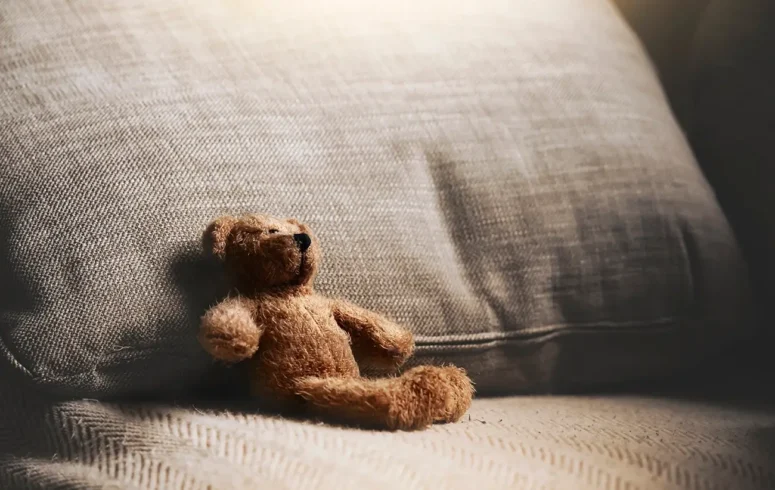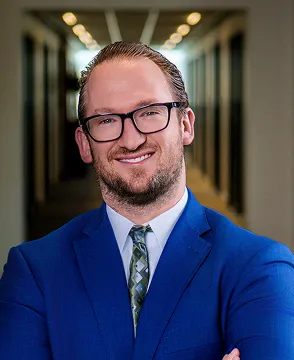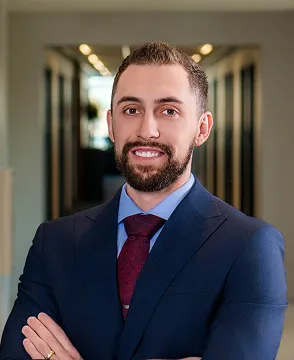Child Sexual Abuse
Advocating for the Rights and Protection of Survivors of Child Sexual Abuse.
Contact Simon Law to schedule your free case evaluation.
Child Sexual Abuse Litigation Attorneys at Simon Law
Child sexual abuse is a profoundly serious and devastating crime that can have lasting impacts on survivors and their families. At Simon Law, we understand the sensitive and complex nature of these cases and are dedicated to providing compassionate, comprehensive legal support.
Our experienced attorneys work diligently to hold perpetrators and any negligent parties accountable, including institutions that may have failed in their duty to protect children. We offer personalized guidance through every step of the legal process, from investigation to litigation, ensuring that survivors receive the justice and compensation they deserve.

About Child Sexual Abuse
Child sexual abuse involves any sexual activity with a minor, including inappropriate touching, exposure to explicit material, and exploitation. It is a grave violation that can occur in various settings, such as homes, schools, churches, or youth organizations, often perpetrated by someone in a position of trust. Survivors of child sexual abuse may experience profound emotional, psychological, and physical consequences, which can last a lifetime. The legal system provides avenues for holding abusers and negligent institutions accountable. Understanding the signs, seeking help, and taking legal action are critical steps in protecting children and pursuing justice for those affected.
What is Considered Child Sexual Abuse?
Child sexual abuse encompasses a wide range of inappropriate and harmful behaviors perpetrated by an adult or older adolescent against a child. It includes any sexual activity with a minor, including but not limited to:
- Sexual contact: Any physical contact with a child’s genitals, buttocks, or breasts, whether clothed or unclothed, that is intended for the sexual gratification of the adult or older adolescent.
- Exploitation: Engaging a child in sexual acts for the purpose of producing child pornography or other sexual material.
- Exposure: Exposing a child to sexual acts, pornography, or other sexually explicit material.
- Grooming: Engaging in behaviors designed to gain the child’s trust and manipulate them into a sexual relationship. This can include giving gifts, offering special attention, or gradually desensitizing the child to inappropriate behavior.
- Indecent exposure: An adult exposing their genitals to a child.
- Verbal and emotional abuse: Inappropriate sexual comments or language directed at a child.
Child sexual abuse can occur in various settings, including the home, schools, religious institutions, and online. It is a serious crime with significant physical and psychological impacts on survivors. Legal definitions and consequences can vary by jurisdiction, but the core concept involves any sexual behavior that exploits or harms a child.
Who Can be Held Accountable in a Child Sexual Abuse Case?
In a child sexual abuse case, multiple parties may be held accountable depending on the circumstances. These can include:
- The perpetrator: The individual who directly committed the act of abuse is the primary party held accountable. This person can face both criminal charges and civil liability for their actions.
- Parents or guardians: In some cases, parents or guardians who were aware of the abuse and failed to protect the child or report the incident may be held accountable.
- Institutions: Organizations such as schools, churches, daycare centers, youth organizations, or sports clubs can be held liable if they failed to properly screen, supervise, or protect children from abuse by employees, volunteers, or other individuals under their care. This includes cases where the institution was negligent in hiring practices, failed to provide adequate training, or ignored warning signs of abuse.
- Supervisors or managers: Individuals in positions of authority within institutions who ignored complaints, failed to act on warning signs, or covered up incidents of abuse can also be held accountable.
- Others who assisted or enabled the abuse: This can include individuals who facilitated the abuse by providing access to the child, covering up the abuse, or intimidating the victim into silence.
In a child sexual abuse case, both criminal and civil legal actions may be pursued to hold these parties accountable. Criminal charges can result in penalties such as imprisonment and fines, while civil lawsuits can seek compensation for the victim’s physical, emotional, and psychological damages.
What Should I Do if I Suspect My Child Has Been Sexually Abused?
If you suspect that your child has been sexually abused, it’s crucial to take immediate and compassionate action to ensure their safety and well-being. Here are the steps you should take:
- Ensure safety: The first priority is to ensure your child’s immediate safety. Remove them from any potentially harmful situations and ensure they are in a secure environment.
- Stay calm and supportive: Your child needs to feel safe and supported. Stay calm and avoid showing panic or anger, as this can be distressing for them. Reassure them that they are safe, that they did nothing wrong, and that you believe them.
- Listen carefully: If your child discloses information about the abuse, listen carefully without pressing for details. Let them share at their own pace. Avoid asking leading questions, as these can affect the accuracy of their account.
- Document the details: If your child shares information, write down what they say as soon as possible. Document any signs of abuse, such as physical injuries or changes in behavior, and note the date and time of the disclosure.
- Seek medical attention: If there is any physical evidence of abuse or if your child is in pain, seek medical attention immediately. A medical professional can provide necessary care and document any physical evidence.
- Report the abuse: Report the suspected abuse to the appropriate authorities, such as the police or child protective services. In Missouri, for instance, you can contact the Missouri Child Abuse and Neglect Hotline. Mandatory reporting laws may require you to report if you are a professional working with children.
- Seek professional help: Consider seeking counseling or therapy for your child to help them process the trauma. A qualified mental health professional can provide support and guidance.
- Contact an attorney: Consult with an attorney who specializes in child sexual abuse cases. They can help you understand your legal options, including pursuing criminal charges against the abuser and filing a civil lawsuit for damages.
- Avoid confronting the suspected abuser: Do not confront the suspected abuser, as this could potentially escalate the situation or jeopardize any investigation.
- Preserve evidence: Preserve any potential evidence, such as clothing, electronic communications, or physical items, without tampering with them.
Taking these steps can help protect your child and ensure that the abuse is properly investigated and addressed.
What Evidence is Needed to Prove Child Sexual Abuse?
Proving child sexual abuse involves gathering and presenting various types of evidence to support the claims and demonstrate that abuse occurred. The key types of evidence needed include:
- Testimony of the Victim: The child’s account of the abuse is central to the case. Their testimony, though sensitive and often requiring careful handling, provides direct evidence of the abuse. It’s essential that the child’s statement is documented accurately and that they are interviewed in a supportive environment.
- Physical evidence: Medical examinations can reveal physical signs of abuse, such as injuries or infections. Forensic medical professionals can document these findings, which may include evidence of trauma, bruises, or other physical symptoms consistent with sexual abuse.
- Medical records: Records from medical examinations or treatments related to the abuse can provide evidence. These documents may include notes from doctors or specialists, diagnostic reports, and any treatment administered.
- Psychological or behavioral evidence: Changes in the child’s behavior, mood, or psychological state can indicate abuse. Reports from psychologists, therapists, or counselors who have worked with the child can provide insight into the emotional and psychological impact of the abuse.
- Witness testimony: Testimony from individuals who may have observed suspicious behavior or signs of abuse, such as teachers, caregivers, or family members, can be valuable. These witnesses can corroborate the child’s account or provide context about the environment where the abuse occurred.
- Documented evidence: Any relevant documents, such as journals, letters, or electronic communications, that may provide additional context or evidence supporting the abuse claims can be used.
- Expert testimony: Expert witnesses, such as forensic psychologists or child abuse specialists, can provide professional opinions and interpretations of the evidence. They may also offer insight into the typical signs of abuse and the validity of the child’s claims.
- Physical items: Any physical items that may be associated with the abuse, such as clothing or objects found at the scene, can serve as evidence. These items should be handled carefully to preserve their integrity.
Collecting and presenting this evidence requires careful consideration and often the assistance of professionals experienced in handling sensitive cases. Legal representation specializing in child sexual abuse can help ensure that the evidence is gathered properly and used effectively to support the case.
What is the Statute of Limitations for Filing a Child Sexual Abuse Lawsuit?
The statute of limitations is the time period within which a lawsuit must be filed. For child sexual abuse cases, the timeline can vary significantly based on the jurisdiction and the specifics of the case.
Nationally
In many jurisdictions across the United States, the statute of limitations for child sexual abuse cases has been extended or eliminated to allow survivors more time to seek justice. Generally, the time limits may be extended until the victim reaches a certain age (e.g., 18 or 21) or for a specific period after the abuse is discovered. Some states also allow claims to be brought many years after the abuse if the victim was not initially aware of the abuse’s impact due to psychological trauma.
In Missouri
In Missouri, the statute of limitations for filing a civil lawsuit for child sexual abuse is generally 10 years from the date the victim turns 18 years old. This means that survivors have until they are 28 years old to file a lawsuit. However, Missouri law allows for an extension if the abuse is not discovered until a later date. In such cases, the lawsuit must be filed within 3 years of discovering the abuse or the injury resulting from it, as long as this is within 30 years of the victim turning 18.
Key Points to Remember:
- The statute of limitations may vary depending on whether the case is civil or criminal.
- The timeline can be affected by factors such as the discovery of abuse or ongoing psychological trauma.
- It’s crucial to consult with a legal professional to understand the specific time limits applicable to your case and ensure that your rights are protected.
Given the complexity and potential changes in laws over time, seeking advice from a lawyer experienced in handling child sexual abuse cases is important to ensure timely and appropriate legal action.
What Types of Compensation Can be Sought in a Child Sexual Abuse Lawsuit?
In a child sexual abuse lawsuit, victims can seek various types of compensation to address the physical, emotional, and financial impacts of the abuse. The specific types of compensation may vary depending on the circumstances of the case and the jurisdiction, but generally include:
Economic Damages:
- Medical expenses: Compensation for costs related to medical treatment, therapy, and counseling necessary for the victim’s physical and emotional recovery.
- Lost wages: If the abuse has affected the victim’s ability to work, compensation for lost income and reduced earning capacity can be sought.
- Future medical costs: Coverage for ongoing or future medical treatment, therapy, or counseling needs.
Non-Economic Damages
- Pain and suffering: Compensation for the emotional distress, psychological trauma, and pain endured as a result of the abuse.
- Emotional distress: Recognition of the severe emotional impact, including anxiety, depression, and post-traumatic stress disorder (PTSD).
Punitive Damages
- Punitive damages: In some cases, the court may award punitive damages to punish the perpetrator or liable parties and deter similar conduct in the future. These damages are intended to go beyond compensation and reflect the severity of the misconduct.
Loss of Consortium
- Loss of consortium: Compensation for the impact of the abuse on the victim’s relationships with family members, including loss of companionship and emotional support.
Rehabilitation and Support Services
- Rehabilitation costs: Compensation for specialized services aimed at helping the victim rebuild their life and cope with the aftermath of the abuse.
Key Points to Remember:
- The types and amounts of compensation will depend on the details of the case, including the severity of the abuse and its impact on the victim’s life.
- Compensation is aimed at addressing both the tangible and intangible effects of the abuse.
- Consulting with an attorney experienced in child sexual abuse cases can help in assessing potential damages and navigating the legal process to seek appropriate compensation.
Legal representation is crucial to ensure that all possible avenues for compensation are explored and that the victim’s rights and needs are fully addressed.
Are There Any Special Considerations for Cases Involving Institutions Like Schools or Religious Organizations?
Yes, there are several special considerations for cases involving institutions such as schools or religious organizations in child sexual abuse cases:
Institutional Liability
- Vicarious liability: Institutions can be held liable for the actions of their employees or representatives if the abuse occurred in the context of their duties or while under the institution’s supervision. This is known as vicarious liability.
- Negligence: Institutions can also be held liable for failing to take reasonable steps to prevent abuse, such as inadequate background checks, improper supervision, or failing to address known risks or complaints.
Duty of Care
- Increased responsibility: Schools, religious organizations, and similar institutions have a heightened duty of care to protect children from harm. This includes ensuring that their staff are properly vetted and trained and that proper protocols are in place to safeguard children.
Policies and Procedures
- Internal policies: Reviewing the institution’s policies and procedures can be crucial in determining whether there was a failure in the institution’s duty to protect. This includes examining how the institution handles allegations of abuse and whether it followed its own guidelines.
Institutional Records
- Document discovery: Legal claims against institutions often involve extensive discovery of records, including employment history, internal communications, and previous complaints. These records can provide evidence of negligence or a pattern of misconduct.
Public and Media Attention
- High-profile cases: Cases involving well-known institutions may attract significant public and media attention. This can influence legal strategies and the handling of the case, as well as affect the emotional and psychological impact on the victim.
Settlement and Confidentiality
- Settlement agreements: Institutions may offer settlements to resolve claims, which might include confidentiality agreements. Victims should carefully consider the terms of any settlement and consult with an attorney to ensure that their rights are protected.
Institutional Response
- Institutional defense: Institutions may have substantial resources for legal defense, which can affect the litigation process. This may involve rigorous defenses and attempts to discredit the claims, making it essential to have strong legal representation.
Cases involving institutions can be particularly complex due to the layered responsibilities and the potential for multiple liable parties. Legal action in these situations often requires addressing not only the actions of the individual perpetrator but also the failures and misconduct of the institution itself. Working with an attorney experienced in handling institutional cases is crucial, as they can provide valuable guidance and support throughout the legal process, helping to navigate the intricacies involved and ensure that all responsible parties are held accountable.
How Can I Support My Child Emotionally During a Legal Case?
Supporting a child emotionally during a legal case, particularly one involving sensitive issues like sexual abuse, is crucial for their well-being. Here are some key ways to provide support:
Create a Safe Environment
- Open communication: Encourage your child to express their feelings and thoughts. Let them know it’s okay to talk about their emotions and that they are not alone.
- Safe space: Ensure that your child has a safe, comforting space where they feel secure and supported.
Provide Reassurance
- Emotional support: Reassure your child that they are loved and that what happened is not their fault. Consistently affirm your support and understanding.
- Stability: Maintain as much normalcy and routine as possible to provide a sense of stability during the legal proceedings.
Professional Help
- Therapy: Consider seeking help from a child psychologist or counselor who specializes in trauma or abuse. Professional therapy can offer your child a safe outlet for their feelings and help them develop coping strategies.
- Support groups: Look for support groups for children who have experienced similar situations. Connecting with peers who understand their experience can be comforting.
Involvement in the Legal Process
- Explain the process: Help your child understand the legal process in an age-appropriate way. Make sure they know what to expect and that they have control over what they share and when.
- Minimize stress: Ensure that your child is prepared for any legal proceedings they may be involved in, but try to minimize their direct involvement to reduce stress.
Monitor Behavior
- Behavioral changes: Watch for any signs of distress or behavioral changes in your child. This can include changes in mood, sleep disturbances, or difficulties in school.
- Open dialogue: Maintain an open dialogue about their experiences and feelings. Be attentive and responsive to any changes in their emotional state.
Self-Care for Parents
- Support for yourself: Take care of your own emotional well-being. Seeking support for yourself can help you remain strong and provide better support for your child.
- Professional guidance: Consider speaking with a counselor or therapist yourself to navigate the stress and emotions involved in supporting your child.
Avoid Overburdening
- Balance: Try to balance the focus between the legal case and everyday life. Ensure that your child has opportunities for normal activities and positive experiences.
Emotional support is crucial throughout the legal process, as it can significantly impact your child’s well-being and recovery. Seeking professional help provides both your child and your family with essential tools for coping with the emotional strain. Additionally, maintaining open communication and offering reassurance can greatly aid in your child’s emotional recovery, helping them to navigate the challenges of the situation with greater resilience and comfort.
What Privacy Protections are In Place for Survivors in Child Sexual Abuse Cases?
In child sexual abuse cases, privacy protections are crucial to safeguard the survivors and ensure their well-being throughout the legal process. Here are the key privacy protections in place:
- Confidentiality of records: Court records involving child sexual abuse cases are typically sealed to protect the identity of the survivor. This ensures that sensitive information does not become public and remains confidential.
- Anonymity in legal proceedings: In many jurisdictions, survivors can proceed with their cases using pseudonyms or initials rather than their full names to protect their identity. This helps prevent public exposure and maintains privacy.
- Restrictions on media coverage: Courts often impose restrictions on media coverage to prevent the publication of identifying details about the survivor. This helps minimize the risk of further trauma and maintains the survivor’s confidentiality.
- Protective measures during testimony: Measures such as closed-circuit television, screens, or other accommodations may be used to shield the survivor from direct confrontation with the perpetrator during court proceedings. This helps to reduce the emotional impact and protect their privacy.
- Support services: Survivors are often provided access to support services, including counseling and advocacy, which can offer additional layers of privacy and help manage the emotional impact of the legal process.
Overall, these protections are designed to ensure that survivors can seek justice without compromising their privacy or well-being.
Meet Our Dedicated Team of Attorneys
When you need qualified and reliable guidance, you know where to turn. Simon Law is ready to listen to your story and review the complex aspects of your case.





Get the Help You Need from Our Sexual Assault Lawyers
Simon Law has the resources and expertise to handle your child sexual abuse case without sacrificing the personalized counsel and support you deserve. Complete and submit the contact form below, call our office, or reach out directly to one of our sexual assault attorneys today.